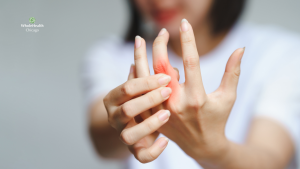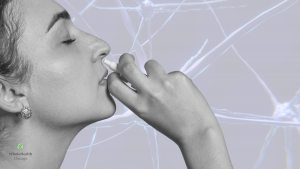We’ve all had our personal ruts. You wake up one morning realizing that there you are, seemingly trapped.
Maybe it’s your job–you’re teetering on real burn-out but you’re fearful of making the move to free yourself. Or a relationship that’s going nowhere, but there you stay, justifying your misery (or boredom) for some dubious better-than-nothing qualities. Maybe it’s the town you live in, or your apartment.
The “If only…” theme keeps drifting across your mind.
People don’t think about vinyl records much anymore, but the needles used to get caught in the same groove, endlessly repeating the same sound. And maybe yours is, “I can’t get out….can’t get out…can’t get out.”
Well, people can and do get “unstuck” from all sorts of ruts and grooves. Every day, people bravely leap forward. Starry-eyed, and often looking ten years younger, a patient will show up one morning to say, “I’m finally heading to Petaluma” and ask if I know a good doctor out there. There may be some stumbling at first. Not every change is an unqualified success, but the experience of the change itself is hardly ever regretted.
If you’re serious about exiting a rut and willing to engage in an evening of self-exploration, here’s a five-step activity to help you get unstuck.
1. Take the issue in your life that you feel most intensely traps you. Maybe it’s your weight, the job and the promotion you haven’t received, or the people you work with. Or the city you’re living in, your current relationship, or circle of friends. Now on a piece of paper headed “My Stuck Situation,” draw lines to create three columns. In the first, list every reason you’re reluctant to make changes. In the second, list the worst case scenarios if you would make changes. And in the third (here you can fantasize galore!), list all the possibilities your life can open to if and when you make the leap.
2. Look at your “worst case scenario” column. I want you to think of word or phrase that describes your emotions when you look at this list. Somewhere there’s a common thread to all your “worst cases” and you need to discover it. It might be I Fear the Unknown, or I Have Real Issues with Self Esteem. Or maybe: I Can’t Upset My Parents, I Can’t Disappoint People, or Challenges Frighten Me. There will be some phrase, and you might feel a shiver down your spine in the very act of writing it. Like it or not, this is part of your character. But, of course, you can change. People do, every day.
3. Write that phrase boldly across the top of a second piece of paper and prepare for a personal review of your life story. Think back over your life and start listing examples of how this phrase permeated your significant life choices. Did you always take dumb jobs because you feared challenges? Did you always find yourself dating jerks because you felt unworthy of anyone better? Did you always stay in the same town because your parents made you feel guilty about leaving? As you work on this list, the words “yikes!” or “gosh!” (or a juicy expletive) might escape your lips, because you’ll be amazed how ancient some of these issues actually are. But as psychologists say, “Now we’re getting somewhere.” Becoming aware of yourself like this, even though it may be painful at first, is ultimately very healing.
4. On a new sheet of paper, start listing how your phrase (“can’t upset my parents,” “low self esteem,” etc.) is currently affecting other aspects of your life. Maybe you’ll unearth why you’re always eating the same unhealthful foods. Watching the same TV programs. Taking the same vacations. Same love interests, like your dad.
5. On the last piece of paper, re-write all those “worst case scenarios.” You’ll probably feel just a teensy bit nervous as you write them out, but remember, they’re only words. Nothing really has happened, has it? Now make a plan of action for each of these worst case situations. Go into detail. Rehearse imaginary conversations. When tackling your “worst cases,” you’re like a general preparing for battle.
You see, psychologists tell us that we use unhealthy “stuck” behaviors as defense mechanisms to avoid those issues we fear to face. For example, if our parents told us that being unemployed was “being poor,” then we fear unemployment to the extent that we spend our lives in miserable (but safe) jobs. In order to get unstuck we have to probe our fears, see how they’ve created negative patterns, and deal with them by solving unrealized worst case scenarios.
Of course, finishing up this project, it’s a little premature to think you’ve exited the rut just yet. It’s late at night and you’re still in the same job, same city, same relationship. You haven’t lost any weight.
But now you’re aware of new aspects of yourself. Tomorrow take some baby steps (new food choices, looking at the job board at work) and later you’ll consider the bigger steps (calling a headhunter for a new job, joining a club to lose weight, seeing a marriage counselor or divorce lawyer).
Being stuck in a rut has simply been a way to protect yourself from fears you’re reluctant to face. Acknowledge your fears, then realize the worst case scenarios aren’t insurmountable, and BAM! you’ve broken free.








